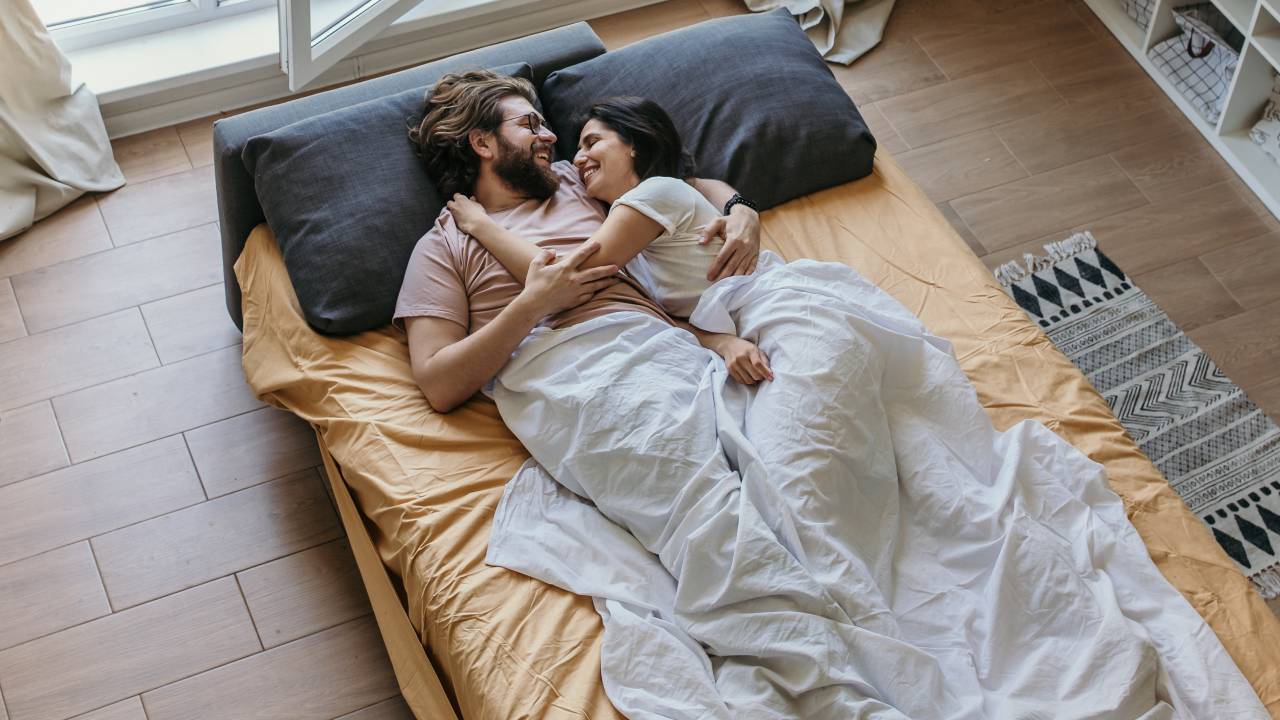Your partners’ sleeping habits could be ruining your sleep, says new study
Sharing a bed? Here are 5 sleeping habits that could ruin your sleep & relationship


Get all the latest news, reviews, deals and buying guides on gorgeous tech, home and active products from the T3 experts
You are now subscribed
Your newsletter sign-up was successful
When you decide to move in with someone and share a bed with them, it’s actually a much bigger deal than you might realise. From picking the best mattress to suit both of your needs, to differing sleep schedules, to snoring and fidgeting, sharing a bed has major effects on your sleep quality and duration.
To find out more, we spoke to leading bed retailer, Bensons for Beds, who conducted a survey that looked into the worst bedroom habits committed by you or your partner that could be ruining your sleep and relationship.
1. Poor hygiene
According to the survey, the worst offence your partner might commit in the bedroom is having poor hygiene. 28% of participants responded that they were immediately grossed out by their partner for cutting their toenails in bed (ew), and another 28% discovered their partners didn’t frequently change their bed sheets (if you’re unsure, see how often should I wash my sheets for more details).
Poor hygiene in bed can refer to many different things, from not showering before bed after a workout to having bad sleep hygiene. Practicing good sleep hygiene makes a world of difference to the quality and quantity of your sleep, and if your partner neglects their bedtime routine or drinks too much coffee before bed, this can affect how you sleep and how rested and refreshed you feel the next day.
2. Bed etiquette
Is your partner a cover hog? Or is their snoring getting unbearable? Well, then we wouldn’t blame you for wanting a sleep divorce. Bensons for Beds’ survey found that more than 31% of people said the worst thing their partner could do in bed was snore, steal the blankets or talk in their sleep. To an extent, snoring and sleep talking are natural and oftentimes something that people can’t help but if it’s especially loud, this can keep you awake and disrupt your sleep. To help your partner stop snoring, here are 5 techniques to try tonight and to address the cover hogging, it might be worth trying the Scandinavian sleep hack, where you each have your own duvet.
3. Being messy
A fifth of the survey’s participants stated that having a partner that doesn’t clean up after themselves or leaves things lying around the bedroom is their biggest pet peeve. Whether that’s leaving dirty laundry on the floor or leaving cabinets and drawers open, this bedroom habit is more annoying and disruptive than you might think. If you or your partner suffer with anxiety or you’re having a busy week, this mess can increase your stress levels and it clutters what is meant to be your sleep sanctuary.

4. Eating in bed
5. Not switching off devices Eating in bed might be one of the worst bedroom habits that you or your partner can do. 21% of survey participants said they hated their partners eating in bed with more men commenting that they disliked finding crumbs under the blankets. 23% of women compared to 13% of men responded that an offensive bedroom habit is leaving leftovers in the bedroom. In general, sleeping and eating should be done in separate rooms, mainly for hygiene reasons but also because you don’t want to start associating your bed with food and not rest. This can affect how long it takes you to fall asleep and how well you sleep overall.
Get all the latest news, reviews, deals and buying guides on gorgeous tech, home and active products from the T3 experts
5. Not switching off devices
In the survey, almost a quarter of respondents stated that they hate it when their partner uses their phone or works from bed. Similar to eating, work should be separated from the bedroom so you don’t associate your bed with meetings and emails. But, the main reason your bed should be electronics-free is because of blue light, which is emitted from your screens. This light disrupts your circadian rhythm and tricks your brain into thinking that it’s daytime, meaning you stay awake longer and get less rest. Plus, it’s not nice if you’re trying to sleep and your partner has a bright light shining on you.
For more tips on sharing a bed with someone, check out these 6 couples sleeping positions and how good they are for you and your partner’s health.

Beth is Home Editor for T3, looking after style, living and wellness. From the comfiest mattresses to strange things you can cook in an air fryer, Beth covers sleep, smart home, coffee machines, watches, grooming tools, fragrances, gardening and more.
In her spare time, Beth enjoys running, reading, baking and attempting craft projects that will probably end in disaster!